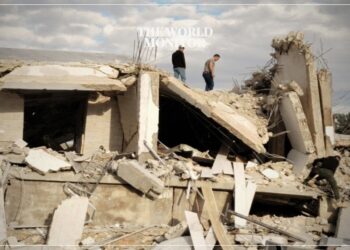The Iraqi Prime Minister, Mohammed Shia’ Al-Sudani, reaffirmed, today, that the terror organization ISIS no longer poses a threat to Iraq. In an interview with “The National”, relayed by the Iraqi News Agency (WAA), Al-Sudani stated, “There’s no longer a necessity for the international coalition formed against ISIS.” He added that later this month, a joint committee will convene with the American side, focusing on strengthening bilateral ties with the U.S. in areas of security cooperation, indicating their openness in various fields.
Al-Sudani emphasized that the existence of Syria, with its political system and populace, is preferable to an unpredictable alternative that might plunge the region into another war with ISIS. Any security upheaval in Syria would unleash terrorist forces, threatening the security of Iraq and the region.
Recently, Al-Sudani assured that the shape of the relationship with the international coalition would be defined in the coming days. In a discussion with media representatives, he commented on recent American movements in Syria, emphasizing that no troop movements occur in Iraq without the Iraqi government’s knowledge, as reported by the Iraqi News Agency. He stressed Iraq’s lack of need for combat forces and announced the upcoming mid-September meeting of the Iraqi-American joint committee to decide the future relationship with the international coalition.
The U.S. President, Joe Biden, and the Iraqi Prime Minister, Mustafa Al-Kadhimi, inked an agreement officially ending U.S. combat missions in Iraq by the end of 2021, after more than 18 years of American troops presence. Biden clarified the U.S.’s role would pivot to training, counteracting ISIS, and intelligence support.
The “Al-Fateh” coalition welcomed the Iraqi negotiator’s achievement of an accord for the complete exit of combat forces by this year’s end, seeing it as a significant step towards achieving full national sovereignty. Currently, around 2,500 U.S. soldiers are stationed in Iraq, primarily focused on countering remnants of ISIS. Their role will entirely shift to training and advising the Iraqi army.
The U.S.-led coalition invaded Iraq in March 2003, predicated on allegations that Saddam Hussein’s regime possessed weapons of mass destruction. Saddam was deposed from power, but such weapons were never found. The evolving relationship between Iraq and the U.S. is emblematic of the shifting sands of Middle Eastern geopolitics, reflecting the region’s complexities and the multifaceted role the U.S. has played therein. The reduction of American military involvement comes after years of turbulent relations and signifies Iraq’s growing assertion of its national sovereignty.






